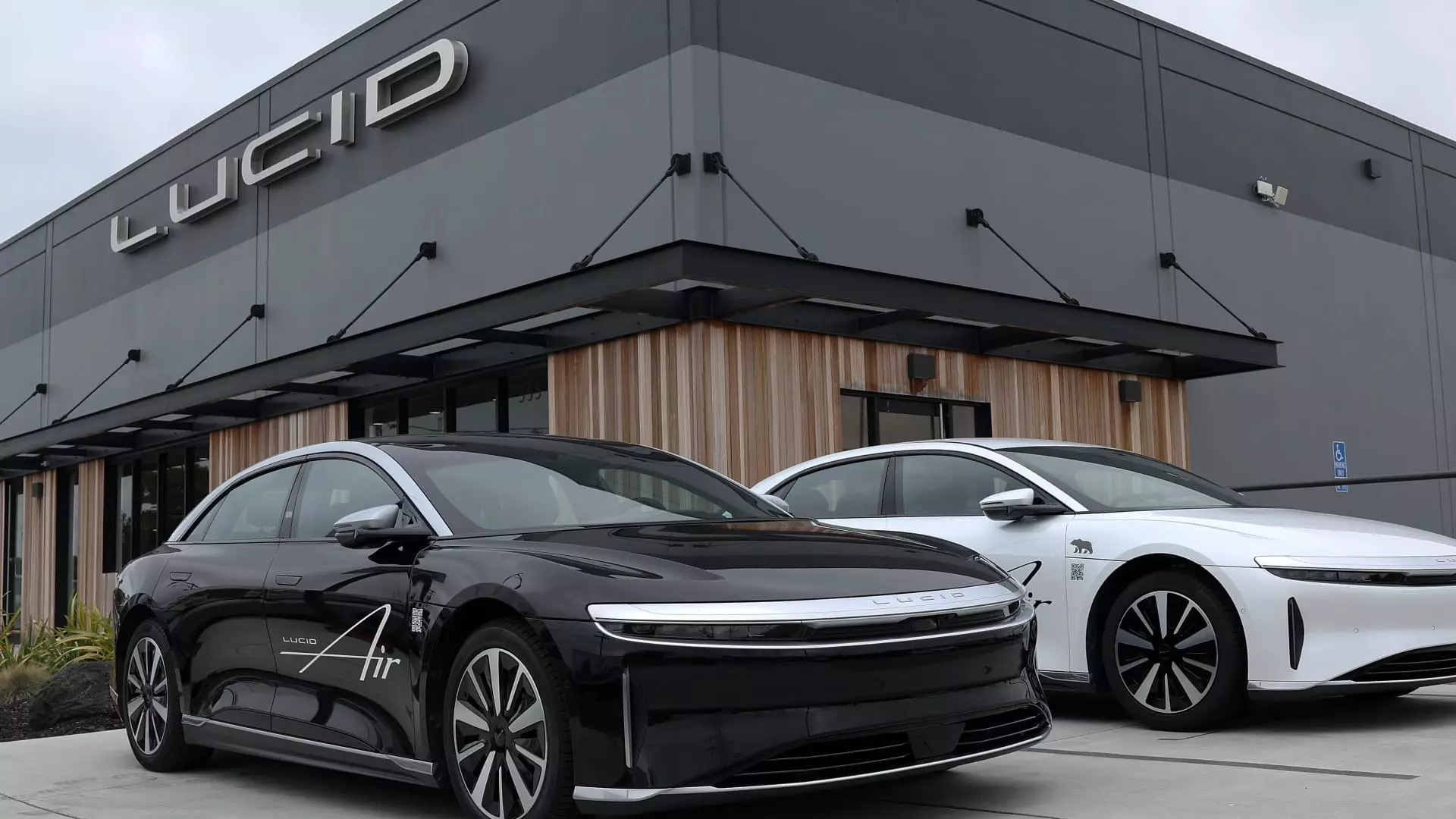The electric vehicle (EV) sector is in a constant state of flux, and companies like Lucid Group find themselves navigating through a landscape marked by competitive challenges, financial scrutiny, and ambitious growth targets. As Lucid recently reported its third-quarter results, it revealed a mixed bag of performance metrics that have implications for its future in the increasingly crowded EV market.
Lucid Group managed to surpass Wall Street expectations for the third quarter, albeit by a slim margin. The company reported an adjusted loss per share of 28 cents, slightly better than the anticipated loss of 30 cents. Revenues also edged out forecasts, coming in at $200 million against expectations of $198 million. This performance led to a noteworthy increase in share prices, which climbed more than 8% in after-hours trading, reflecting a cautious optimism from investors. However, beneath these buoyant metrics lies a more concerning reality: the company’s overall net loss for the quarter rose significantly to $992.5 million—a stark increase from the $630.9 million loss posted a year ago.
Lucid’s CEO, Peter Rawlinson, framed the quarter as a pivotal moment, emphasizing record deliveries of 2,781 units alongside commendable cost-cutting strategies. Despite these achievements, the widening losses raise questions about the company’s long-term sustainability and its strategies in a highly volatile market.
One of the striking aspects of Lucid’s financial report is the sharp increase in its expenditures. Research and development costs surged by over 40% year-on-year, totaling $324.4 million, while selling, general, and administrative expenses increased by 23.1%, amounting to $233.6 million. This trend is concerning, given the company’s mission to streamline costs and achieve operational efficiency. Yet, it demonstrates the heavy investments Lucid is committing to R&D and operational infrastructure, which are crucial for long-term competitiveness.
In the face of these rising costs, Lucid remains steadfast in its ambition to produce around 9,000 vehicles in 2024—an increase from the previous year’s 8,428 units. The company claims to have sufficient liquidity of $5.16 billion, bolstered by a recent capital raise that surprised many investors. This liquidity is critical as Lucid prepares to launch its next-generation SUV, the Gravity, by the year’s end.
Despite confirming its production goals and financial targets, Lucid’s stock has struggled throughout the year. The share prices fell approximately 45%, including a significant drop following the recent capital raise—its largest fall since December 2021. This predicament highlights the precarious balance Lucid must maintain between securing vital funding and reassuring investors about its financial health.
The electric vehicle market is notorious for its capital intensity, and Lucid is no exception. The company is investing heavily in scaling its operations by expanding its Arizona manufacturing plant and constructing a second facility in Saudi Arabia, which requires substantial upfront capital. Alongside these physical expansions, Lucid is also developing its next-generation powertrain technologies and enhancing its retail and service frameworks.
Moving forward, Lucid Group stands at a crossroads. On one hand, the company’s commitment to cutting costs while ramping up production positions it favorably against many competitors that are also grappling with similar market conditions. On the other, the rising tide of consumer demand for electric vehicles means Lucid must execute flawlessly to capture a share of the market without losing its financial footing.
The recent unveiling of the Gravity SUV may serve as a critical point for the company. If consumer interest translates into high demand, it could bolster both Lucid’s revenue and investor confidence. However, this potential success hinges on the company’s ability to manage its operations effectively, maintain creditworthiness, and sustain investor enthusiasm through the inevitable ups and downs of the electric vehicle market.
While Lucid Group has shown resilience in tackling immediate financial challenges, the road ahead is filled with both significant opportunities and daunting hurdles. The coming quarters will be pivotal in defining the company’s trajectory, as it strives to solidify its place in an ever-competitive industry.

